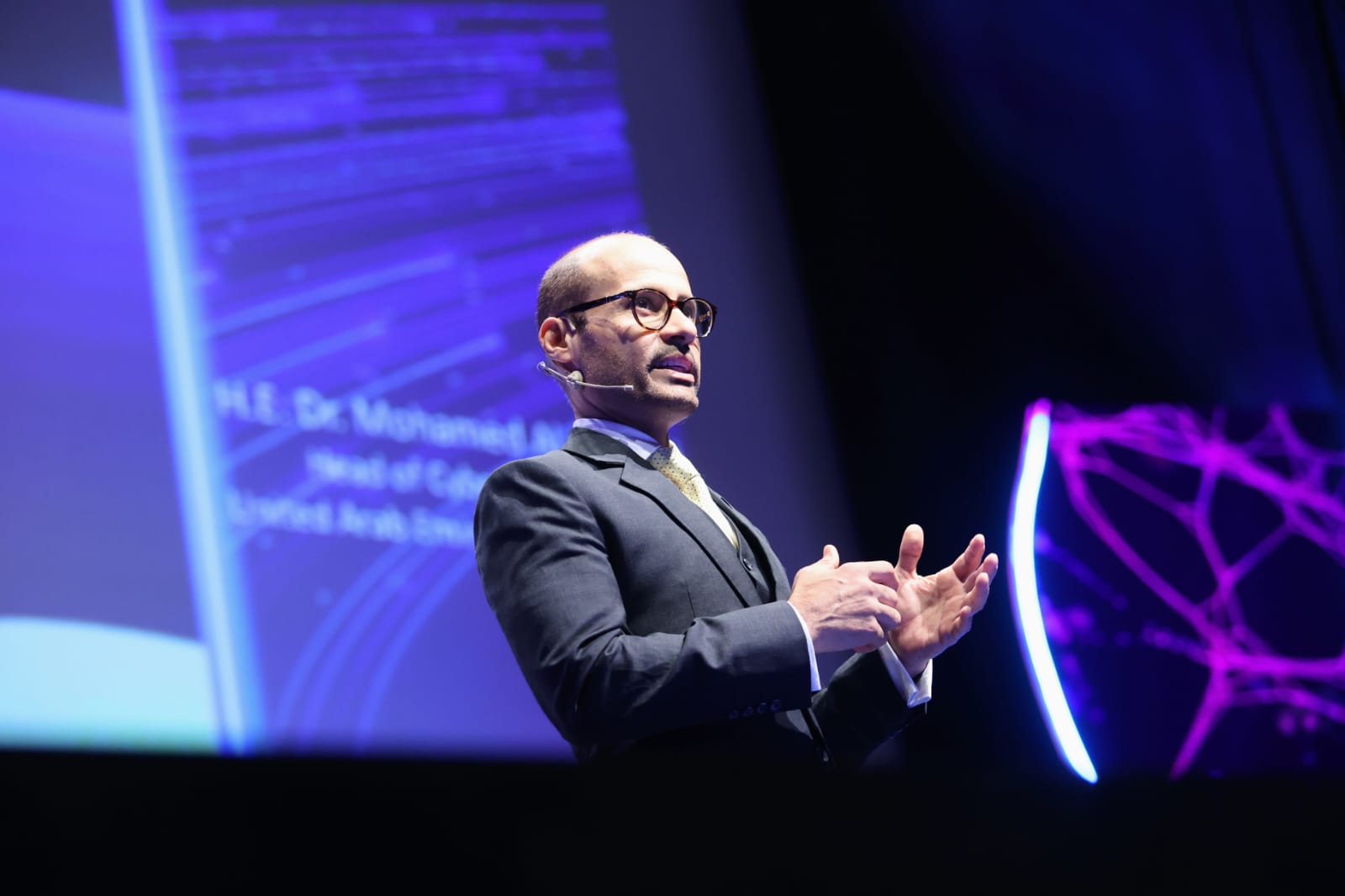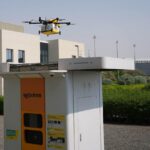UAE, Israel battle computer hackers together with ‘Crystal Ball’ platform
Emirati cybersecurity chief Mohamed Al Kuwaiti meets Netanyahu, addresses international conference at Tel Aviv University

Cyber Week, Tel Aviv University
Mohamed Al Kuwaiti, UAE head of cybersecurity, speaking at Cyber Week conference in Tel Aviv
TEL AVIV, Israel – Fighting computer crime together has helped reinforce ties between the United Arab Emirates and Israel since they signed a normalization agreement almost three years ago, the UAE’s head of cybersecurity, Mohamed Al Kuwaiti said.
Visiting Tel Aviv last week for the annual Cyber Week conference, Al Kuwait introduced the “Crystal Ball” project, a digital platform for detecting and repelling computer attacks. Microsoft, Israel’s Rafael Advanced Defense Systems and Abu Dhabi-based CPX are providing the technological backbone, and an unspecified number of countries will also participate.
“Cyberthreats do not distinguish between nations, do not distinguish between entities or people,” Al Kuwaiti said on Tuesday at Tel Aviv University gathering. “That is why we need to unite against those threats, and the Crystal Ball, that we are aiming for the whole community, will be the first step toward that.”
Al Kuwaiti, who met with Israeli Prime Minister Benjamin Netanyahu on Monday as part of a group of national cyber directors attending the conference, said the platform will enable partner countries to “easily and seamlessly share information.” The collaborative international effort will be strengthened by the combination of abilities, processing power and volume of data, he said.
The mission is to “design, deploy and enable regional intelligence enhancement” through collaboration and knowledge-sharing to combat national-level cyberthreats, according to a slide Al Kuwaiti showed during his presentation. He said the value of cooperation between the two countries was demonstrated recently when they worked together to ward off a DDOS (distributed denial of service) attack on their networks.
The UAE and Israel normalized diplomatic relations as part of the September 2020 Abraham Accords, leading to the bolstering of both commercial and strategic ties between the countries. Al Kuwaiti said the connection with Israeli tech companies has been especially helpful in his country’s transition to a digital economy.
Amid the high-level meetings, two networking organizations for information security professionals in the UAE and Israel signed a memorandum of understanding to promote collaboration. UAE-based EliteCISOs and Israel’s Cyber Together said in a statement that they would cooperate on knowledge-sharing, professional training and cybersecurity workshops to help confront emerging threats to both countries.
The meeting with Netanyahu was held at the headquarters of the Israel Security Agency, or Shin Bet, whose director, Ronen Bar, spoke at the Cyber Week conference about the agency’s increasing use of artificial intelligence.
“The ISA and AI have one thing in common,” Bar said. “We both make a living by looking for patterns and anomalies.” He said the agency has also developed its own Generative AI tool that can be used like OpenAI’s ChatGPT.
Another AI innovation being tested by the ISA is an airport security system that he said would “dramatically change” the screening process before flight check-in.
“Maybe one day we will abandon the traditional favorite question for all of you: Did you pack by yourself,” he said.
Bar said the ISA is setting up a technology incubator to help startups develop generative AI products to address security and intelligence needs. He said AI will help the agency in several areas: prioritizing information; boosting intelligence capabilities by identifying patterns and deviations from patterns; becoming a tool in the decision-making process; and helping to forecast trends and the likelihood of their realization.For the agency, he said, generative AI will be a “partner” at the decision-making table, but not a “decision-maker.”
Speaking at the conference on Monday, a former Pentagon official warned that both government and business aren’t paying enough attention to AI’s potential dangers.
“I think that Israel should be very concerned about what algorithms Iran may be trying to develop or acquire overseas,” said Ezra Cohen, the former acting under secretary of defense for intelligence and security who is now vice president for corporate strategy at Oracle Corp.
“Now I’m not saying that we should be treating AI today like a nuclear weapon or anything like that, but there should be certain procedures that are put in place and I think a lot of these companies are really very juicy targets for the adversary,” Cohen said.










